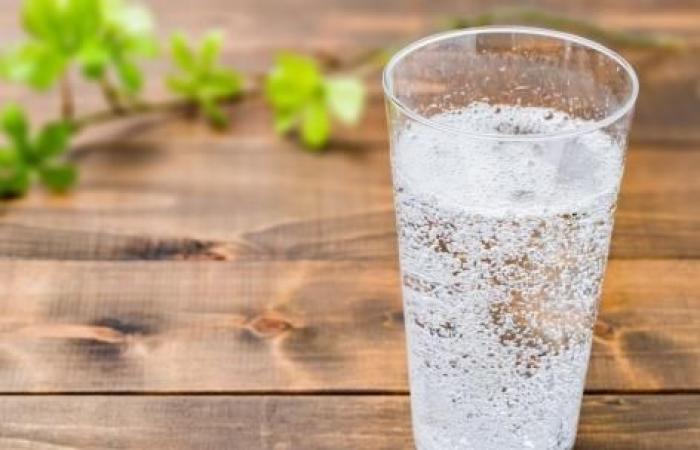THE ESSENTIAL
- Could sparkling water, perceived as satiating, promote weight loss? One study suggests that it slightly stimulates glucose absorption and metabolism, but its impact remains minimal.
- CO2 from sparkling water is absorbed in the stomach and quickly converted to bicarbonate in red blood cells. This process would activate key enzymes, stimulating the absorption and use of glucose.
- Side effects of sparkling water, such as bloating or worsening digestive problems, call for moderation.
Could Drinking Sparkling Water Help Lose Weight? A recent study published in the journal BMJ Nutrition Prevention & Health suggests that sparkling water could boost glucose absorption and metabolism. Except that, at the risk of disappointing some, the effects are so weak that it cannot be considered as a solution in its own right.
A parallel between sparkling water and hemodialysis
Because sparkling water is “filling,” it is often perceived as “satiating.” In this way, it could help calm cravings and speed up digestion. But the exact mechanisms by which it might reduce blood glucose levels and help with weight management remain unclear.
To explore this question, researchers drew a parallel between drinking sparkling water and hemodialysis, a medical procedure for filtering blood in patients with failing kidneys. During hemodialysis, the blood becomes alkaline, producing primarily carbon dioxide (CO2), which is converted to bicarbonate. Similarly, CO2 from carbonated water is absorbed in the stomach and quickly converted to bicarbonate in red blood cells. This process would activate key enzymes, stimulating the absorption and use of glucose, according to a press release.
-Reduced impact on glucose management
The scientists point out that during a typical four-hour hemodialysis session, approximately 9.5 g of glucose are used per 48 liters of blood treated. These figures show that CO2-related reductions in glucose are minimal. So while sparkling water may offer a slight metabolic boost, it is not a solution to weight loss on its own. The authors emphasize the importance of regular physical activity and a balanced diet as essential pillars of sustainable weight management.
In conclusion, the study also warns of the possible digestive effects of sparkling water, especially in people suffering from gastrointestinal disorders like irritable bowel syndrome or gastroesophageal reflux disease. Symptoms such as bloating and gas could indeed occur in the event of excessive consumption. “Moderation is key.”
Health






